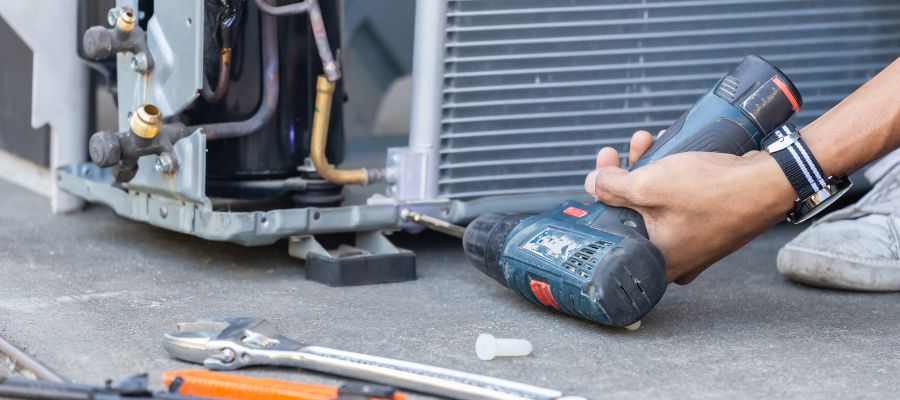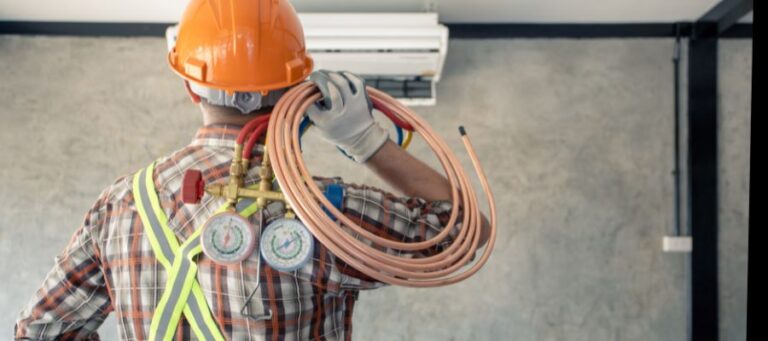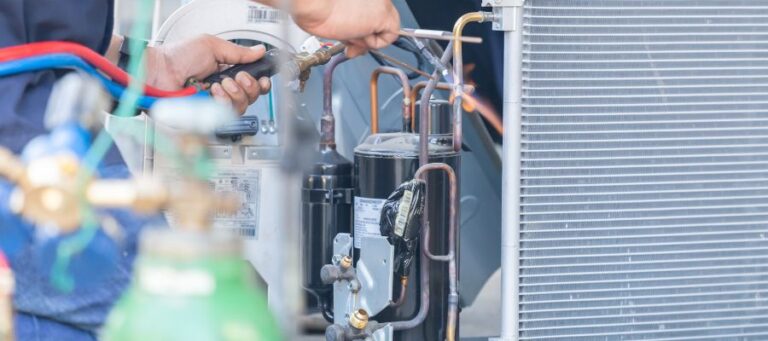

HVAC Services
Get Professional Repairs From The Area's Trusted HVAC Technicians. Ask About Our Services! We Offer Professional Heating & Cooling System Repairs And Guarantee Long-Lasting Results.
Got Question? Call us: (850) 678-2665Financing
Mastering HVAC DIY and Maintenance: A Comprehensive Guide for Homeowners

HVAC systems, which stands for Heating, Ventilation, and Air Conditioning, are vital for maintaining a comfortable and healthy environment in our homes. However, they can be quite complex, and it’s important to understand how they work to maximize their efficiency and lifespan. This comprehensive guide will offer valuable information on HVAC DIY and maintenance tasks that you can perform, along with when it’s time to call a professional.
Understanding Your HVAC System
An HVAC system consists of several key components, including the furnace, central air conditioner, ductwork, thermostat, and various filters. Each of these parts plays a crucial role in heating or cooling your home, and maintaining air quality. Understanding these components and their function can help you troubleshoot common HVAC problems and perform basic maintenance tasks effectively.
Furnace
The furnace is the core of your heating system. It uses fuel (like gas or electricity) to create heat, which is then distributed throughout your home through ductwork.
Central Air Conditioning
This unit cools, dehumidifies, and circulates air by removing heat from your home and expelling it outside.
Heat Pump
Heat pumps can provide both heating and cooling by transferring heat between the inside and outside of your home. They’re most efficient in mild climates.
Ductwork
These are the passageways that distribute heated or cooled air throughout your home. Proper duct sealing and cleaning are essential for system efficiency and indoor air quality.
Thermostat
The thermostat controls the temperature in your home by communicating your settings to the rest of the HVAC system.
DIY HVAC Maintenance Tips
Regular maintenance is crucial for the efficiency and longevity of your HVAC system. Here are some basic DIY tasks you can handle:
- Changing the Air Filter: Air filters prevent dust and debris from entering your HVAC system. Over time, they can become clogged, reducing system efficiency and air quality. Regularly changing your air filter (every 30 to 90 days) is an essential maintenance task.
- Cleaning the Condenser Coils: The condenser coils in your air conditioner can accumulate dirt over time, which can reduce its ability to cool your home. Cleaning these coils annually can help your AC perform at its best.
- Inspecting the Ductwork: Check your ductwork for leaks or damage. Small leaks can be sealed with duct tape, but larger issues may require professional attention.
- Thermostat Checks: Ensure your thermostat is working correctly by noting any discrepancies between its readings and the actual temperature in your home.
- Clearing the Outdoor Unit: The outdoor unit of your HVAC system should be clear of debris and have at least two feet of clear space around it.
Remember, always follow safety precautions when performing DIY HVAC maintenance. Disconnect power before working on your system and avoid handling refrigerant, which can be hazardous.
When to Call a Professional
While regular DIY maintenance can help keep your HVAC system running smoothly, there are times when you’ll need to call a professional. Signs that professional service may be required include persistent unusual noises, frequently tripped circuit breakers, consistently poor performance, or if your system is more than 15 years old.
Cost-Saving Tips
Maintaining an efficient HVAC system can save you money in the long run. Invest in energy-efficient systems with high SEER (Seasonal Energy Efficiency Ratio) and HSPF (Heating Seasonal Performance Factor) ratings. Programmable thermostats can also help by automatically adjusting your home’s temperature to energy-saving settings when you’re away or asleep.
Understanding Indoor Air Quality
Your HVAC system plays a crucial role in maintaining indoor air quality. Regular filter changes and duct cleaning can significantly reduce indoor air pollutants. You can also consider adding an air purifier or humidifier/dehumidifier to your system for further air quality control.
In Conclusion
Understanding and maintaining your HVAC system can extend its lifespan, reduce your energy bills, and improve your home’s comfort and air quality. With these HVAC DIY and maintenance tips, you’ll be well-equipped to keep your system running smoothly. And when it’s time to call a professional, you’ll be better informed about what’s going on with your system, so you can communicate effectively and make the best choices for your home’s comfort and budget.
Related Articles:
The Comprehensive Guide to HVAC Tune-Up
The Comprehensive Guide to HVAC Troubleshooting



